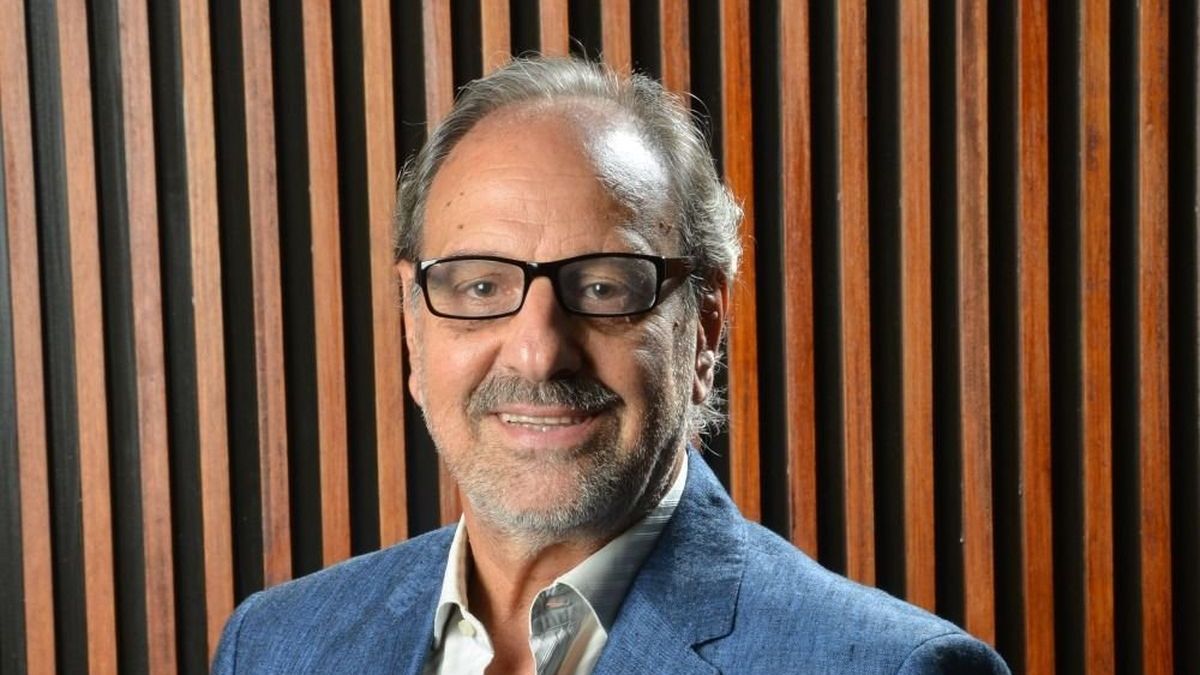Journalist:How would you define IBF Negocios??
Hugo Benedetti: IBF Negocios is dedicated to acquiring companies that are performing well from a commercial and financial point of view. The purpose of this acquisition is for these companies to serve as a basis as an income strategy for investors. We buy companies that are able to pay interesting dividends, assuming that these dividends are precisely the income strategy of our investors. Whenever we invite investors to a business, we invite them to invest in companies that, due to their performance, their economic and financial commercial profile, are in a position to carry out a stable and attractive dividend policy. The characteristics of being an investment company differentiate us from a fund. It is not that people invest in a fund and we more or less within certain coordinates buy companies. No, it is a “deal to deal” business; that is, deal by deal. Each person decides which company he wants to join, under what conditions and with what amount. Even if they have participated in one or two companies with us, investors are not required to participate in all of them. It is a decision that can be made on a case-by-case basis.
Q: What do investors demand most today?
HB: We fundamentally have three large investment verticals, which correspond to the sectors that we define as strategic. We invest in agribusiness, for example, in a specific fertilizer company, which has been performing well. We recently acquired a seed company called Procampo. We invest in Agroenfoque and Procampo. Until now, all our investments are in Uruguay. These two companies, put together, make a lot of sense: one is for seeds – basically corn and fodder – and the other is for fertilizers. From a logical administrative point of view, it makes a lot of sense that they can be close and generate synergies, working together.
Q: What are the other two?
HB: Another important vertical is food. A couple of years ago we invested in a very large sausage and sausage company – the largest in volume in Uruguay – called Doña Coca. We have also invested in a food group that combines different food companies, which are managed through traditional retail channels. We are carrying out a consolidation strategy. In addition, we are looking at another company that produces pork products, sausages and sausages, which would also make a lot of sense to locate near Doña Coca. They are very complementary companies. The third sector of our interest is the veterinarian. In Uruguay we have two distribution companies of veterinary specialties, dedicated to animal health.
We cover all categories – pets, livestock, poultry and pigs. We have two distributors with which we reach the main businesses in the sector. We represent and distribute large veterinary multinationals. At this moment we are studying an alliance, a strategic association, with a company that is very strong in animal rations and pet food, a leading company in the market here in order to also expand in the veterinary sector, covering not only animal health, but also animal feeding. Those are the three main verticals of action. There are other sectors that we also like to look at companies, we like to analyze technology companies.
Q: What is the business ecosystem in Uruguay like today?
HB: I was lucky to live abroad for 20 years, mainly in Argentina. I also lived in Brazil. There I was able to enjoy the advantages of large markets and their possibilities; the tremendous potential that these countries have for business development. In Uruguay you enjoy not the large size of the market, but other advantages: the stability of the rules of the game, the institutionality, the fact of encountering certain conditions that tend to be maintained over time. When changes occur, they are generally announced in advance. I learned to value advantages of Uruguay outside of Uruguay. Being away for a few years, you begin to value. IBF is a business that, if things were reasonable, should have been born in Argentina. The reason was to do it in Uruguay for stability, predictability, a friendlier business environment, where trust is still a value. Argentina continues to be a very interesting market due to its volume and power, but it has many challenges regarding the rules of the game and institutions.
Q.: As a businessman, what advantage did you get from working for so long in Argentina?
H.B.: My career in the corporation in itself had an important added value. Corporations are very educational entities, very good schools. A lot of systems, processes, and methodology are incorporated. Many times corporations, with their political games or games of demands and over-demands, become a beautiful girlfriend who knows that one day you are going to have to leave her. because those loves often do not come to fruition. That’s kind of what happened to me. When I reached the age of 50, the corporation where I was sold the division to which I belonged and it seemed like a good time to take the leap and start the path to financial independence. Within this decision, the experience I took was very important. The dynamism of the Argentine market shaped me a lot; It turned me into a flexible executive, with a waist, and a solution seeker. Challenge proof. The size of the Argentine and Brazilian markets opens your mind a lot, making you a person more easily able to accept challenges.
Q: Many value the resilience of the Argentine executive.
H.B.: Have no doubt that it is so. The average Argentine executive is very talented. In my corporate days I traveled around the world a lot and met Argentine executives in the highest positions, exalted in all sectors of the economy. Wherever you go: United States, Europe. The Argentine executive is very talented. This permanent change in the rules of the game and the ability to adapt quickly to adverse realities gives them a background that makes them unbeatable. They are very well armed people for hostile environments.
Hugo Benedetti.jpg
Q: What particularities does a leader have to have today?
HB: There are two or three topics that are on the table, related to leadership and team management. These are topics that justifiably gained center stage. Little by little, more and more, we moved to a more balanced assessment of the so-called “soft skills.” Relational skills, driving skills, put on an equal footing with business skills, specific and technical skills. The big differences are made by good leaders. Technical knowledge is learned. There are many things that, although they can be learned, are much closer to what are character and personality attributes. There are many tools that are not very teachable, such as leadership and team building. These things are more closely linked to certain personality and character characteristics. The role of the leader is increasingly valued. The fact that a leader is motivating, participatory, a great generator, an individual with the ability to transfer enthusiasm, is increasingly valued. They are the least common activities to find. The higher one rises in the organizational pyramids, the more necessary it becomes. There comes a time when what you do for yourself has little influence. You achieve much more by influencing others.
Q: The challenge of learning to live with others.
H.B.: That is fundamental. A few weeks ago I presented my book “Directors and directories” in Uruguay. A journalist told me why there was so much emphasis on relational aspects, if a board of directors was not a place where only rationality and little emotionality reigned. I told him that this was a statement quite far from reality. directories have a lot of emotionality; Decisions are carried out by individuals who very often have – or we have – very important egos. The higher you are on the organizational ladder, the more difficult you find people, with very marked character traits. The upper echelons of organizations are the territory of giants, heavyweights. It is difficult for you to find tame lambs. You will find more big bad wolves than little red riding hoods. Engaging with these profiles, achieving empathy, being able to include, fit in, learning to complement each other, is essential. In heavyweight territory, one has to have the guts to empathize with fellow travelers. There are no tame little lambs.
Q: Have there been any changes in executive training in recent years?
HB: More and more people are training to reach these levels and more and more emphasis is placed on these linking concepts: leadership, empathy, team building, valuing diversity. These issues, 10 or 15 years ago, were on the table with much less emphasis.
Q: I mentioned your latest book, what repercussions is it having?
HB: He’s doing very well. It is having a very positive impact, they called me from various places to present it. I always liked to write. This is the sixth book I have written, it has been very satisfying, a very nice experience.
Q: Agribusiness and food are two of IBF’s strategic sectors. What do you think are the areas of the future?
HB: These sectors are very identified with the crux of Uruguay as a country. We are a country considered agribusiness, food producer. Today it is also a great software producing country. For a few years now, Uruguayan software exports have had the same volume as dairy exports. There is a lot of software development business being done. There is a lot of interest from abroad in Uruguayan software companies. There are some unicorns that have made it to the stock market. They are all cutting-edge sectors, which are attracting many people. They have a highly qualified workforce. The software sector in Uruguay is always full, has 100% occupancy and very good salaries.
Q: Do you have interest in the technology sector?
HB: Yes, it is a sector that we have set our eyes on. The latest director to join IBF is an individual who comes with a very interesting career in the world of technology. He was at a top tech company. He was also part of technology companies from scratch until they were sold to strategic stakeholders abroad. This movement that IBF is making also points to some new sector to incorporate.
Q: What characteristics do IBF investors have?
HB: 80% of our investors are Uruguayan and 20% Argentine. I always joke to my partner that we are in the era of anti-marketing, because we never made a business presentation in Argentina. They came and brought each other: family, friends, they got closer. Instead of us going to look for them, they come.
Q.: What is the Argentine investor looking for in Uruguay?
HB: There are two things basically. He really likes our conservative strategy. We pay for companies that do well. We do not pay for startups or companies that are more or less trying to see if we can reverse the situation. The Argentine investor greatly values knowing that he has his money safely stored in the stock of a company that has a history of stability or growth. The other factor that he highly values is the possibility of earning an annual income of 10, 12% in dollars. An Argentine investor values this more than a Uruguayan one. An income strategy in the order of 10 or 12% annual net in your pocket is something that you value highly.
Source: Ambito




